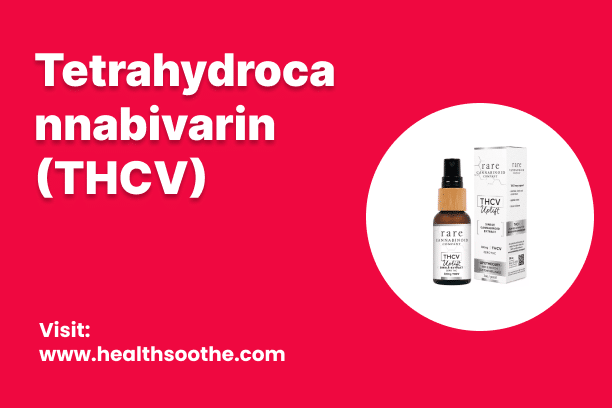What are parasitic Infections?
Parasitic infections are caused by parasites, which are tiny organisms that live on or inside the human body and feed off of their host. There are many different types of parasites that can cause infections in humans, including protozoa, helminths, and ectoparasites.
Some common examples of parasitic infections include:
Malaria: caused by the parasite Plasmodium, which is transmitted to humans by infected mosquitoes
Giardiasis: caused by the parasite Giardia, which is found in contaminated water and food
Toxoplasmosis: caused by the parasite Toxoplasma, which is found in contaminated soil and undercooked meat
Scabies: caused by the mite Sarcoptes scabies, which burrows into the skin
Lice: caused by tiny insects that live on the scalp, pubic hair, or body hair
River blindness (onchocerciasis): caused by the parasite Onchocerca volvulus, which is transmitted to humans by infected black flies
Parasitic infections can cause a wide range of symptoms, including skin rashes, itching, abdominal pain, diarrhea, nausea, fever, and fatigue. The severity of symptoms can vary depending on the type of parasite and the individual's overall health. In some cases, parasitic infections can cause serious and even life-threatening complications if left untreated.
Who is at risk of parasitic infections?
Parasitic infections can affect people of all ages, genders, and ethnicities, although certain populations may be at higher risk. Some factors that can increase the risk of parasitic infections include:
Travel to areas with high rates of parasite transmission: Parasites such as malaria and giardia are common in certain parts of the world, and travellers to these regions may be at increased risk of infection.
Poor food: Parasites can be spread through contaminated water and food, so people who live in areas with limited access to clean water and sanitation facilities may be at higher risk.
Weak immune system: People with weakened immune systems, such as those with HIV/AIDS or cancer, may be at increased risk of parasitic infections.
Agricultural or outdoor work: People who work in agriculture or spend a lot of time outdoors may be at increased risk of parasite transmission from insects, soil, and animal waste.
Poor hygiene: People who have poor hygiene habits, such as not washing their hands regularly, may be at higher risk of parasitic infections.
It is important to take steps to reduce the risk of parasitic infections, such as practicing good hygiene, avoiding contaminated food and water, and using insect repellent to prevent insect bites. If you are traveling to an area with a high risk of parasite transmission, talk to your doctor about preventive measures you can take to reduce your risk.
Treatment of parasitic Infections
The treatment of parasitic infections depends on the type of parasite and the severity of the infection. Some common treatment options include:
Antiparasitic medications: These medications are designed to kill the parasite, either by directly attacking it or by disrupting its life cycle. Examples of antiparasitic medications include ivermectin, metronidazole, and albendazole.
Antibiotics: In some cases, bacterial infections can occur along with parasitic infections, and antibiotics may be needed to treat the secondary infection.
Supportive care: In some cases, parasitic infections can cause symptoms such as dehydration, malnutrition, or anemia. In these cases, supportive care may be necessary to manage the symptoms and help the individual recover.
Prevention measures: In addition to treatment, it is important to take measures to prevent the spread of parasitic infections to others. This can include practicing good hygiene, avoiding contaminated food and water, and using insect repellent to prevent insect bites.
It is important to seek medical attention as soon as possible if you suspect you may have a parasitic infection. Early treatment is key to reducing the risk of serious complications and speeding recovery. Your doctor will be able to diagnose the type of parasite and recommend the most appropriate treatment plan for your individual situation.
Ivermectin for parasitic Infections
Ivermectin is a medication that is commonly used for the treatment of parasitic infections, such as head lice, scabies, and river blindness (onchocerciasis). Ivermectin works by paralyzing and killing the parasites, which helps to clear the infection.
Ivermectin is usually taken orally, and the dose and duration of treatment will depend on the type of parasite and the severity of the infection. For head lice, for example, a single dose of ivermectin is often recommended. For scabies, a series of doses may be necessary to completely clear the infection.
It is important to follow your doctor's instructions when taking ivermectin, as the medication should not be taken with certain types of medications or medical conditions. Additionally, ivermectin is not effective against all types of parasites, so it is important to have a correct diagnosis before starting treatment.
If you need ivermectin, you should talk to your doctor to determine if it is appropriate for you. If your doctor determines that ivermectin is the right medication for you, they will provide you with a prescription that you can use to purchase the medication at a licensed pharmacy.
Click here to Buy Ivermectin online
How to take Ivermectin
The recommended dosage and administration of Ivermectin depends on the type of parasitic infection being treated and the individual's age, weight, and overall health.
Here are some general guidelines for taking Ivermectin:
Oral administration: Ivermectin is usually taken orally in the form of a tablet or liquid. The recommended dose is usually taken on an empty stomach with a full glass of water.
Timing: The recommended timing for taking ivermectin can vary depending on the type of infection being treated. Some infections may require a single dose, while others may require multiple doses taken over a period of time.
Duration of treatment: The duration of treatment with ivermectin will depend on the type of parasite and the severity of the infection. In some cases, a single dose may be enough to treat the infection, while in other cases multiple doses may be needed over a period of time.
It is important to follow the dosing instructions provided by your doctor and to complete the full course of treatment, even if you start to feel better before the medication is finished. If you have any questions or concerns about taking ivermectin, talk to your doctor or pharmacist. They will be able to provide more specific guidance based on your individual situation. If you experience any serious side effects while taking ivermectin, seek medical attention immediately.







